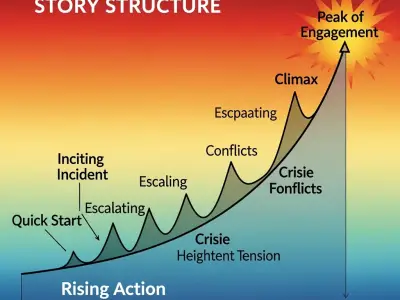Navigating the complex dynamics with a narcissist can be challenging, yet understanding how to assert your power and boundaries is essential for your well-being. Whether it's in personal relationships, the workplace, or other areas of life, dealing with a narcissist requires strategy, resilience, and, most importantly, knowledge.
This blog post sheds light on effective strategies to diminish a narcissist's influence over your life, promoting a healthier and more empowered self.
Jump to:
Understanding Narcissism

Before diving into how to take control away from a narcissist, let’s first understand what narcissism entails. Narcissism is characterised by an inflated sense of self-importance, a deep need for excessive attention and admiration, troubled relationships, and a lack of empathy for others. But beneath this mask of extreme confidence lies a fragile self-esteem, vulnerable to the slightest criticism.
Recognising the Signs
Knowing when you're dealing with a narcissist is the first step to taking control. Common signs include:
- Constant talk about themselves, highlighting their achievements and downplaying others'.
- Manipulation to meet their needs, often at the expense of others.
- A lack of empathy for the feelings or situations of others.
- Difficulty in handling criticism, possibly reacting with anger or defensiveness.
- When a narcissist knows you're onto them, they might ramp up their controlling tactics, making it even more important to stand your ground.
10 Steps to Take Control

Taking control with a narcissist can be challenging but is crucial for your well-being. Here are 10 steps to effectively reduce their influence and empower yourself:
1. Establish Boundaries
The foundation of disarming a narcissist lies in setting firm boundaries. Clearly define what is acceptable and what isn't in your interactions. Be consistent and assertive when communicating your boundaries. This clarity limits their ability to manipulate and control you.
2. Maintain Emotional Distance
Avoid getting emotionally entangled. Narcissists thrive on eliciting strong emotional responses. By staying calm and detached, you reduce their influence over your emotions. This doesn't mean being cold or unkind, but rather not letting their actions dictate your emotional state.
3. Use Clear Communication
When you need to communicate, be straightforward and clear. Avoid ambiguous language that a narcissist could twist to their advantage. Phrases to disarm a narcissist include simple, direct statements like "I disagree" or "I need you to respect my decision." This reduces their room for manipulation.
4. Focus on Facts
Narcissists may distort reality to suit their narrative. In conversations or arguments, focus on facts and resist the urge to engage in their reinterpretation of events. This approach helps keep discussions grounded and reduces the chances of being drawn into unnecessary conflict.
5. Cultivate Self-Confidence
Strengthening your self-esteem and confidence is key when dealing with a narcissist. The stronger your sense of self, the less impact a narcissist's attempts at control or degradation will have on you. Engage in activities that bolster your self-worth and surround yourself with supportive people.
6. Seek Support
Navigating a relationship with a narcissist can be isolating. Seeking support from friends, family, or professionals can give you the perspective and strength needed to maintain your stance. Sharing your experiences with others who understand can be incredibly validating and empowering.
7. Document Interactions
Keeping a record of your interactions with the narcissist can be useful, especially in contexts where legal or professional actions might be necessary. Documentation can serve as a clear evidence base for the narcissist's behaviour and your responses.
8. Educate Yourself
Learning about narcissistic behaviour patterns can arm you with the knowledge to anticipate and neutralise their tactics. Understanding the psychology behind their actions can also help you detach emotionally from their manipulations.
9. Practice Self-Care
Regular self-care practices can enhance your resilience against a narcissist's attempts to undermine you. Whether it's through meditation, exercise, or hobbies that you love, taking care of your physical and emotional health builds a strong foundation for your self-esteem.
10. Know When to Walk Away
Sometimes, the most effective way to take control is to entirely remove yourself from the situation. If a relationship with a narcissist is harming your well-being, consider distancing yourself or ending the relationship. Prioritising your mental and emotional health is paramount.
What Happens When a Narcissist Loses Power?
It's important to recognise the potential outcomes when you start asserting control. A narcissist may increase their efforts to regain control initially. However, consistently applying these strategies can lead to a shift in dynamics where the narcissist realises you are too strong for their manipulation tactics. This doesn't mean they'll change, but it may lead to them reducing their attempts to control you or even moving away to find an easier target.
Common Questions About Narcissism and Control
Can a narcissist ever truly change their behaviour?
While it's challenging, change is possible with intensive therapy and a genuine desire from the narcissist to alter their behaviour. However, it's rare and usually a long and difficult process.
How do I deal with a narcissist in a co-parenting situation?
In co-parenting situations, prioritise clear, written communication and set firm boundaries. Limit direct interaction and use legal or mediation services to minimise conflict.
What if the narcissist is my boss or colleague?
If your boss is a suspected narcissist, maintain professionalism and set clear boundaries. Document interactions and seek support from HR if necessary. Focus on building a supportive network within your workplace.
Can ignoring a narcissist be an effective strategy?
While ignoring a narcissist can temporarily disarm them, it's not a long-term solution. Setting boundaries and maintaining emotional distance are more sustainable strategies.
How do I stop feeling guilty for distancing myself from a narcissistic family member?
If you have a narcissistic family member, understand that prioritising your mental health is necessary and not selfish. Seeking support from a therapist can help you navigate these feelings of guilt.
What are the risks of confronting a narcissist about their behaviour?
Confrontation can lead to escalation, denial, or retaliation from the narcissist. It's important to assess the potential outcomes and ensure you have support in place.
How can I help someone who is in a relationship with a narcissist?
If you know someone who’s in a relationship with a narcissist, offer support and understanding without pushing them to leave before they're ready. Encourage them to seek professional help and educate themselves on narcissistic behaviour.
Are there any positive aspects of having a narcissist in your life?
There are some positive aspects to having a narcissist in your life. Dealing with a narcissist can lead to personal growth, such as learning to set boundaries, developing resilience, and becoming more self-aware.
How do you rebuild your self-esteem after being in a relationship with a narcissist?
To build your self-esteem after being in a relationship with a narcissist, engage in activities that boost your confidence. Seek supportive relationships and consider therapy to work through the impact of narcissistic abuse.
Is it possible to have a healthy relationship with a narcissist?
A healthy relationship requires mutual respect and empathy, traits often lacking in narcissistic individuals. While managing boundaries can improve interactions, achieving a healthy relationship is challenging.
Enhance Your Skills in Handling Narcissism with Centre of Excellence
Tackle the complexities of narcissistic relationships through our Dealing With Narcissism Diploma Course, crafted to provide deep insights and practical strategies for effective management.
Why Centre of Excellence?
- Inclusivity: We believe that transformative education should be accessible to all, so we've set an affordable price point for our courses.
- Flexible Learning: Our courses are designed to fit around your schedule, allowing you to learn at your own pace and integrate your studies into your busy life seamlessly.
- Comprehensive Curriculum: Covering a broad spectrum of topics related to narcissism and personal empowerment, our course is tailored to meet a variety of interests and support needs.
- Dedicated Support: Enrollment comes with personalised tutoring and access to a community of like-minded learners, ensuring you have guidance and encouragement throughout your learning journey.
Special Offer:
We’re excited to offer our Dealing With Narcissism Diploma Course for a discounted rate of just £29, saving you over £100!




